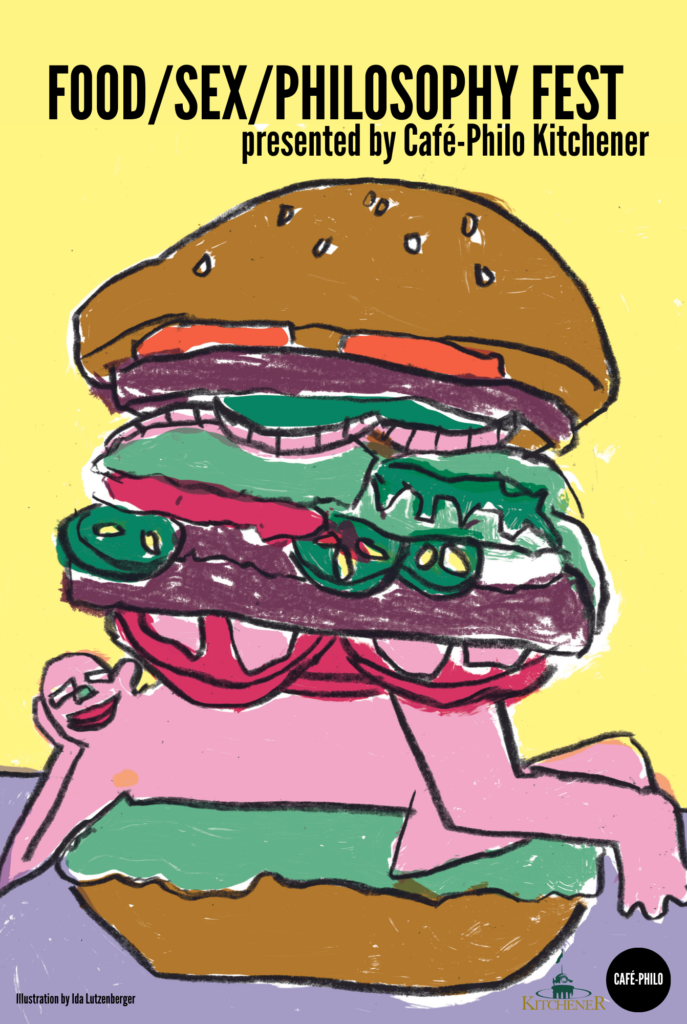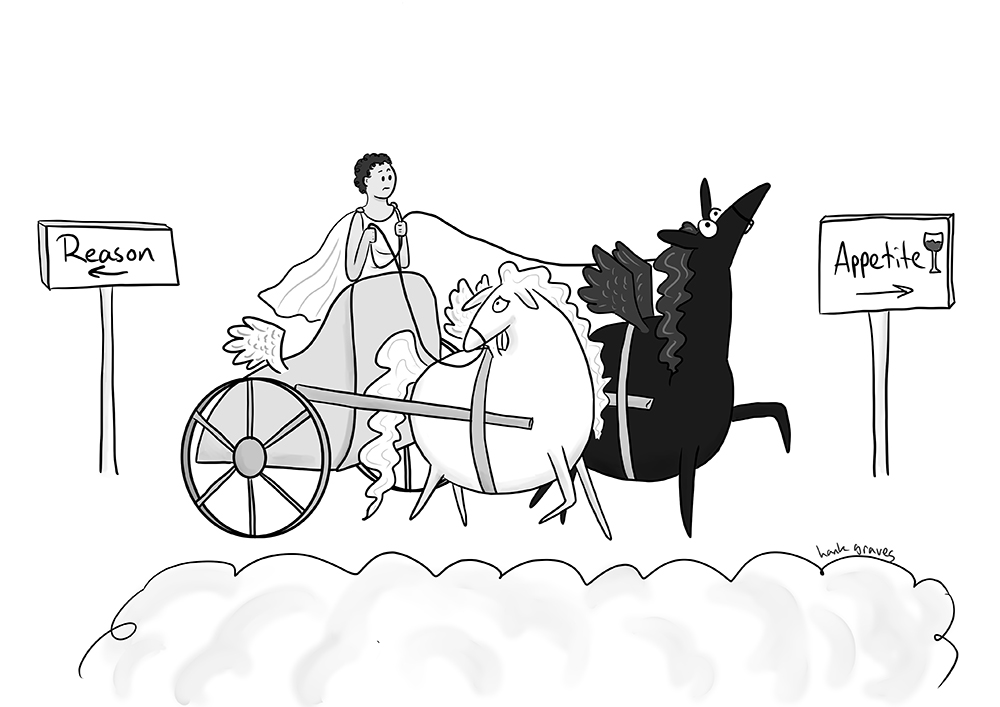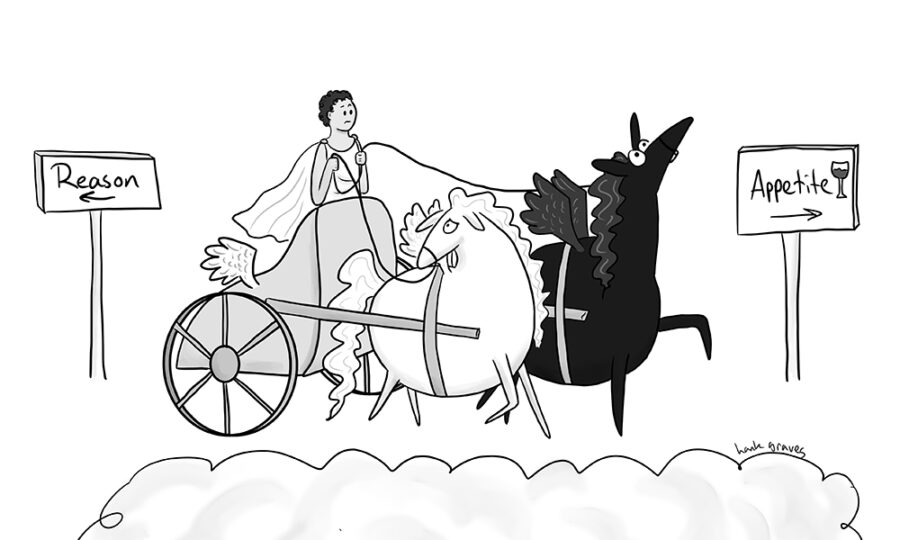Café-Philo Kitchener was founded by Hannah Gardiner in 2020 with the aim of promoting openness, tolerance, and critical thought within the local community. This summer,Café-Philo Kitchener hosted a Food/Sex/Philosophy fest to collectively explore the age-old intersection of food & sex in the cultural imagination.

I was delighted to participate in the Food/Sex/Philosophy fest by giving a talk called “Power and Pleasure at the Dinner Table.” Connections between embodiment, pleasure, desire, and consumption can take you in many directions. I wish I could have explored them all!
Even though I call the event “a talk,” it felt much closer to a conversation than a presentation. Although I did talk for about forty minutes, the discussion was rich and exploratory. It was moderated by poet Haley Down, whose initial questions provoked broader conversation amongst all of us in attendance. We bounced ideas back and forth, and found points of resonance and disagreement. Super fun!
I will be posting the talk as a series of posts. Here’s the first installment, the introduction-as-invitation. Bon appétit!
An invitation
Philosopher Raymond Boisvert (2014) makes this observation:
Professional philosophers can hardly deny that they are embodied, stomach-equipped creatures. Still, when it comes to engaging in the work of philosophy, this aspect quickly disappears. (p. 3)
Let me ask you two questions, and these are not rhetorical! I want you to respond. First question: what comes to mind when you hear the term “philosopher”? To put the first question differently, who do you imagine when you think about who a philosopher is? Second question: where do you imagine philosophy being done?
Reading across the history of Western thought, humans are often described as if we are disembodied minds. The body, at least, is not to be trusted. One of Plato’s metaphors for the soul captures this well. In his dialogue the Phaedrus, Plato depicts the human soul as a charioteer. Reason is the charioteer, guiding a docile white pegasus and a willful, disobedient black one. The willful black pegasus is our appetite, our embodied desires. A skilled charioteer is able to guide the pegasi into order so as to fly closer to truth and beauty. Thus, the body is naturally something that is disruptive to order and that must be subdued by reason.

Art by Hank Graves.
In I Eat, Therefore I Think, Boisvert explores how our understanding of philosophy changes when we take seriously the idea that humans are “embodied, stomach-equipped creatures.” This evening, I take Boisvert to be a central conversation partner in re-imagining what it means to be human and do philosophy when we center our guts, our tongues, and our noses. Unlike a traditional philosophy talk, I won’t argue for a particular conclusion. Rather, I offer an invitation to join me at three philosophical tables that, I hope, will provoke us to think together about the relationship between food, desire, and community.
Stay tuned for the next installment: The Party Table!
